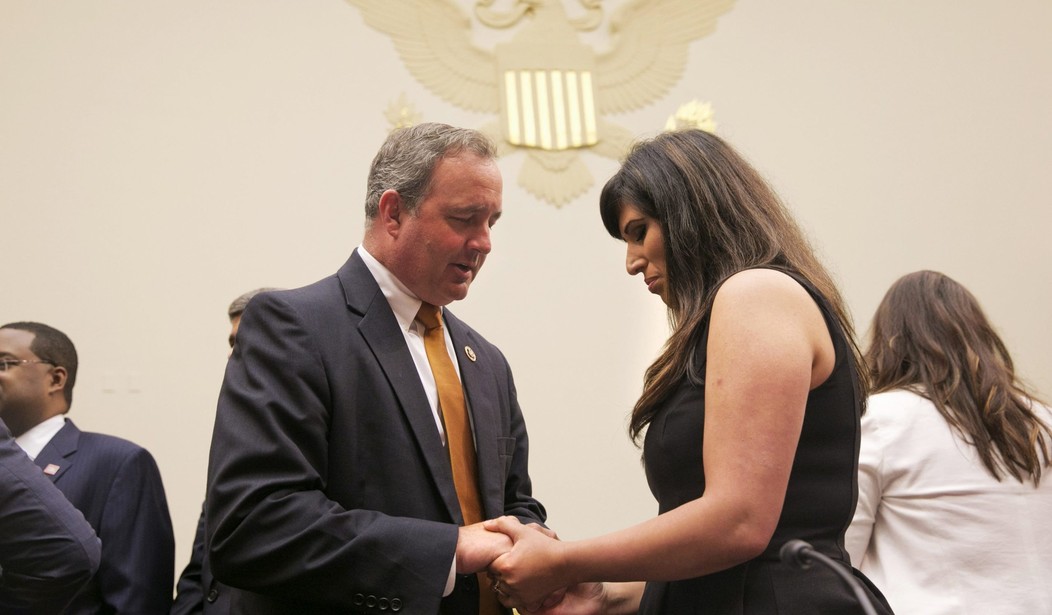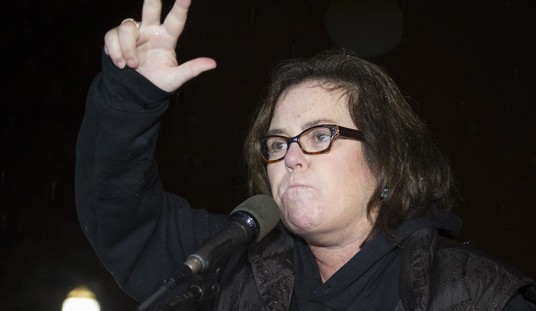Every week PJ Parenting writers weigh in on parenting issues large and small and you have the opportunity to share your insights in the comments section below. We’d love it if you’d join us for a cup of coffee and some great conversation!
***
Question: Do you allow your kids to say “I hate you”?
***
Bethany Mandel: My kids are still non-verbal, so I can’t speak to what I do in this circumstance yet, but I will share what my mother did, which I think was the right call. She told me I was within my rights to hate her, but every relationship is voluntary. If I chose not to be a part of it, so did she. She went on a mothering strike — no lunches or dinners, no laundry, no rides, no spare cash; basically I had the roof over my head and nothing else. Every time she went on strike, I realized how much I needed her and how much she deserved my respect, even if I didn’t love her at the moment. I was allowed to say anything I wanted, but it didn’t mean she had to sit back and take it quietly.
***
Michael T. Hamilton: I long ago resolved that no single word would ever be inherently off-limits for my children. I have this policy for my sake as well as theirs. As one who earns his keep with words, first by teaching and now by writing, I need to be held to a standard higher than “Don’t say that,” no matter how unnerving “that” may be. After all, the further one hones wit, irony, satire, and sarcasm, the better one gets at using the sweetest of words to rain down sulfur on one’s neighbor. On the other hand, hard times call for hard words.
It so happens that in our home “hate” is nearly off-limits, and the phrase “I hate you” definitely is. They won’t be, however, if my kids encounter a situation that justly warrants them.
***
Maggie Hamilton: My greater concern than what my son is saying is why he is saying it, and when it comes to bad words, it’s obvious to me that he is searching for the means to express ideas and emotions that he doesn’t yet understand, much less control. We don’t permit him to use words he doesn’t grasp any more than we permit him to use knives or operate a grill, simply because if he tries them too young, he’ll hurt himself and others.
But the day will come when all of these are fair game, and it is both frustrating and funny watching him try to rush that day by finding loopholes. For instance, he knows that “we don’t hate,” but he has gotten a few free passes by saying things like, “Mom, I only hate Satan,” or “Mom, I only hate sin.” That’s all well and good, but when he repeats these things ad nauseum, his jig is up; he is really just enjoying saying “hate,” so we put the word back on the high shelf.
***
Leslie Loftis: Whether they are allowed to say “I hate you” or not, most will say “I hate you,” just as most will threaten to run away to grandma’s or the neighbor’s. In children (not pre-teens and up) these statements are almost always theatrics over frustration. You didn’t let Junior have his way. He’s been thwarted and lashes out with words, much the same way toddlers hold their breath, bang their heads, stomp their feet, or any of the other delightful manifestations of toddler frustration. In fact, these days adults commonly instruct toddlers to “use their words” to express their emotions. And so they do.
Having told them to use words, it is a bit much to then restrict some words, especially ones about emotion. We might tell them not to express their feelings with rude or vulgar words, but we can’t tell them to stop feeling whatever they feel.
So if they are going to say it, how to react?
My parents actually hit on the perfect answer to this dilemma about 40 years ago. From the stairs I yelled at my dad that I hated him. I’ve forgotten what offense he had committed, probably some horror like sending me to bed before “Fantasy Island” or insisting that I finish my homework before escaping to Terri’s or Dani’s house. He looked up at me from the bottom of the stairs and told me, “I understand, but I love you.” And then he just walked away, neither denying my frustration with him nor giving it any more credit than it deserved. As a kid, there is no good comeback to this, other than reverting to toddler tactics, stomping down the hall and slamming the door.
It wasn’t the last time I told my parents I hated them, but I always resisted saying it because I knew that it would draw the response that ended whatever argument in their favor.
***
Rhonda Robinson: Children should never be allowed to be hateful or disrespectful, especially to adults, let alone their parents. Speaking to parents in a hateful manner should be shut down fast the first time it raises its ugly head—the earlier the better.
We have always allowed older children to express their displeasure or disagreement with us so long as it was done in a respectful tone. We did, however, allow for what I call, “impassioned pleas,” where voices were raised, but no disrespect was intended.
“I hate you” from a child should never be taken to heart by a parent, but rather, looked at like the whistle on a tea kettle of boiling emotions.
Paula Bolyard: We didn’t allow it. Period. Our kids were warned that the use of those words would result in unpleasant consequences and thankfully, we never had to follow through because neither of our kids ever said it. Though they are just words, “I hate you” is in a special category for me. It’s disrespectful and meant to inflict pain. We gave our kids wide leeway to disagree with us and voice their opinions (family dinner time was a frequent forum for debates on a wide range of issues), but “I hate you” is not an acceptable debate tactic.
My parents didn’t allow it, either. As I recall, the consequences were something like waterboarding or the gallows or finding someplace else to live. To this day, I do not — cannot — say I hate another person. Part of that is because of the habits I developed growing up, but now that I’m older and I’m a Christian it’s a reflection of my belief that every individual is made in the image of God and has intrinsic worth. If God loved them enough to send his son to die for them, I have no right to hate.
Brianna Sharbaugh: I remember my five-year-old self yelling “I hate you” as I RAN away from my mother down and around our long hallway. You can bet she chased me down and the punishment that fit the crime led me to NEVER use those words again.
As a mom, there are certain words that just will not be allowed to be said in our home. Working on self-control is something we have already started with our toddler. When he is losing it, we take him to his room until he settles down. After less than a month of doing this, he is now going to his room voluntarily when he needs to settle down. He’s 19 months old, so “hate” is not a word he has been exposed to yet, but we are already working toward teaching him self-control, so naturally, controlling his words will follow that same pattern. These skills will help kids at all stages of their lives.
***
Megan Fox: Short answer: NO. I remember a few years ago I was in a friend’s house when her teen daughter used that phrase — in front of company no less. Her mother shrugged it off and laughed when I said it was a mistake to let her talk like that. We all know that teens feel like they hate their parents sometimes (okay, maybe all the time), but it isn’t always okay to voice every thought you have, especially one so vile. I said it to my mother once…and she slapped me right in the mouth. My mother had paddled my bottom many times but she had never, ever, slapped my face. I knew in that moment the gravity of what I had said. I knew I didn’t mean it and boy, was I sorry I said it. I’m not advocating for smacking your kid in the face, and I don’t think my mother intended to do it, either, but the damage those words can do are worse than a slap. Allowing your child to insult and disrespect your authority is not something wise parents do. Allowing your child to lash out at the people he loves the most with words of hatred is damaging to him.
One of my favorite tools for changing attitudes in children (and adults) is my Child Training Bible. It is a special system that tabs important verses that deal with sin issues we all face, so you can quickly reference your problem area. I use it to help my children have the right reaction to anger because we can immediately find out how Jesus wants us to behave and what He thinks about hatred and disrespect. It has been much more effective than me lecturing my children to do what I say because “I say so.” It changes their hearts. It leads them to repentance. When a child says, “I hate you,” what they are really saying is, “I am sinful, help me stop.” Using the Bible helps me be a better parent, too, when I realize that I struggle with the same sin they do. Lord knows I need to tame my tongue.
Let us know what you think in the comments section below!
See previous PJ Parenting Roundtables:
How Often Do You Give Your Children Baths?
How Do You Explain Pictures of Deceased Family Members to Kids?










Join the conversation as a VIP Member